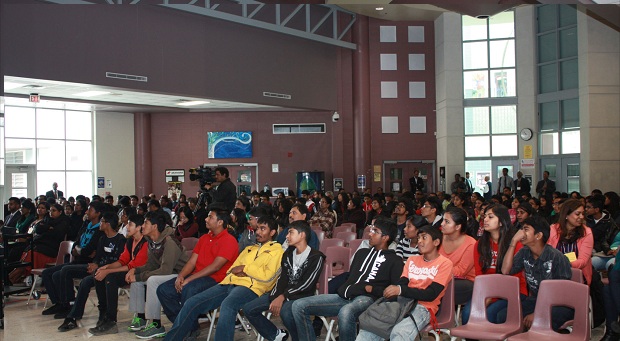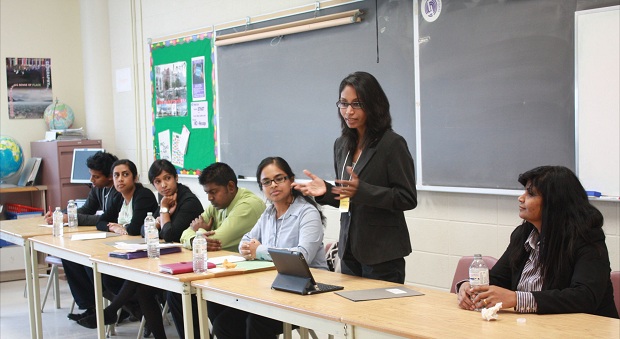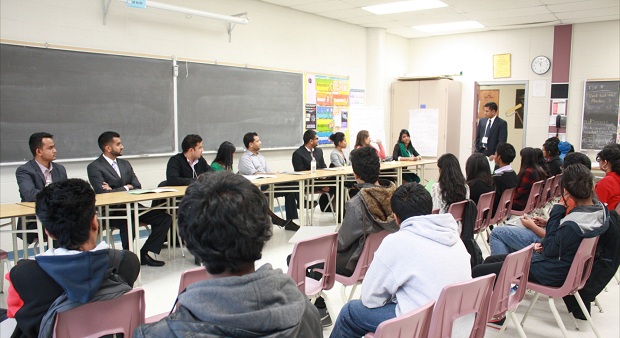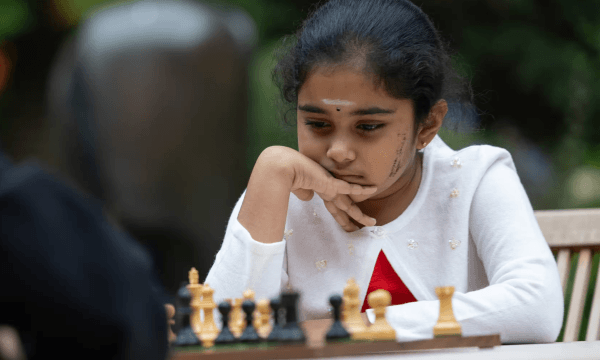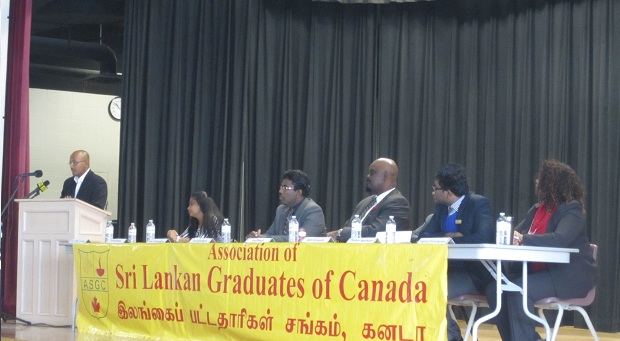
Keynote address given at the annual career counseling session organized by the Association of Sri Lankan Graduates of Canada (ASGC) together with Inclusive School and Community Services of YRDSB on November 3, 2012.
When I was first asked to deliver this keynote address, I wanted to say no. I haven't been a teenager for over 10 years. I’m going bald and blind, I hate going to the mall, and I don’t go to tuition classes on the weekends. What do I know about the challenges of high school today? But, I said yes. And I said yes for one reason only: I teach university students. I’ve met the good students, the bad students, and the annoying students. I’ve also met the ones that I knew were much smarter than I was. And I wanted to provide you with a few tips on how you could be the good kind of student. I want to talk to those just starting high school first, and then I’ll talk to the older students. Parents, I’ll deal with you at the end.
First, for those starting out: When I asked some of my colleagues for advice about what I should tell you today about life in high school and life after high school, they told me to inspire you. They told me to tell you about my own struggles in high school, the things that I did, the things that I should’ve done, or failed to do. This is apparently important, so here goes: I worked full-time throughout much of my high school years. Not part-time. Full-time as a security guard, as a dish washer, and at call-centres. As a security guard, I worked night shifts three or four times a week. I would finish work at seven in the morning, drive directly to my first class, and then go home at 3pm to sleep. And then wake up and do it all over again. I know what many of you are thinking: “Who cares? I work a lot too.” And that’s true. Today, over 30 percent of 15 to 17 year olds work at part-time jobs throughout the school year. Not just during the summer.
This is not necessarily a bad thing, but it can be. Working can build your character, help you meet a diverse array of people, and allow you to have new experiences. But, spending 20 hours a week on something other than school can also be quite stressful. I was never able to admit as a teenager that I was overwhelmed, which I was. I was utterly exhausted, and my grades suffered big time. Admitting that you are overwhelmed can be difficult, but only you can know for sure. Be honest with yourself about your limitations and, more importantly, about your priorities.
Here’s another secret about high school: at this point, you don’t actually have to know what you want to do with the rest of your life. People will ask you this question often, they will try to pressure you in this and that direction, and make you feel like if you don’t make a decision right away, you risk falling behind the pack. Here’s the truth: there is no pack. There’s no rush. The Coach Canada “success” bus isn’t leaving for another six years at least. Grab a Gatorade and take a seat.
Another important part of high school (and feel free to elbow your parents as I say this): you will have boyfriends and girlfriends...and you will probably break up with all of them. Very few of you will get married to the person you are with in high school, even if you carved each other’s names onto you locker and wrote “forever” under it.
Why am I talking about this? What does this have to do with jobs and career choices? I talk about it because the only thing that is going to be more stressful than classes and part-time jobs is negotiating relationships, and falling in and out of love. It’s brutal. Painfully brutal. And here’s a secret: your parents know this. They know it very well, and that’s why they’re scared. But, here’s another secret: you will learn a lot from these failed relationships. You will learn a lot about yourself and your principles. You will learn a lot about regret, sadness, and loss. And most importantly, you’ll learn how to simply be in a relationship. Practice makes perfect, and that applies to love and relationships as well.
While I’ve told you that it is a little early for you to know what you want to do with your life, it is of course never too early to begin thinking about it. In fact, I demand you start now. You’re told all the time: find out what interests you and then find a way to make money doing it. The problem is: you don’t really know what interests you yet. So, here’s what you do: get off Facebook, and go volunteer at different places, try different jobs out, experiment with different stuff. If there’s one thing I wish someone had told me when I was in high school, it is that. Don’t expect to figure it out just by taking classes – schools and classes aren’t really designed for that. I wasted a lot of time because I never really got out there to figure out what I wanted to do. It’s not going to just appear out of thin air.
For example, I had a very inspiring World History teacher in high school. I was amazed by how much she knew, and how well she understood the world around us – the world I was still trying to figure out. I was determined to one day know as much as she did. So, I thought I wanted to be a high school teacher. It seemed obvious at the time. But, it was not until my second year at the University of Toronto, after I actually went and volunteered to help teach a high school class, that I realized “this isn’t really a good fit for me.” I deeply admire high school teachers and I wanted to love it. But I didn’t really know, and I still don’t really know, why it wasn’t a good fit. But, it wasn’t. But, here’s the point: volunteering helped me realize early on what I didn't want to do. The lesson is simple: sometimes what you think you will love turns out to be very different when you actually try it. So, remember that you have a lot of time to figure it out, but the process doesn’t involve just sitting around and waiting for light bulbs to go off. You have to experiment, you have to take risks, and try different things out.
Now, for the older students: you’re almost in university. A year or two away. I remember it like it was yesterday: the annoying piles of paperwork, getting your transcripts together, and, most importantly, picking a major. Then you wait. Small envelope bad. Big envelope good. Having been a university student, a graduate student, and now teaching at a university, let me try to put this big, scary, thing called university into some perspective. You may have already heard this, but it’s important to hear it again.
First, you will probably lose a lot of friends. Members of your high-school crew may disappear to various universities around the world, and you may promise to stay close, but you won’t. You may "like" each other’s pictures on Facebook, and see each other once every few months, but it’s not going to be the same. At the very same time, some universities can be very isolating, and the environment itself – especially if you’re living with your parents – can make it difficult to make friends. I talk about this first because it’s usually the first “experience” of university for most people.
The second experience is the classroom. You used to walk into your high school class, of maybe 30 students, and say “Hi Mr. so and so”, and he would also greet you by name, before sitting down. You also knew the names of most of your classmates. This is all about to change. In first year, depending on your major, you may be in a class with over 100 people. The professor doesn’t know you – they have no way of remembering over 100 names. Because of this, developing personal relationships with your professors is extremely difficult. But, put that on your “to-do” list. And put it near the top. If you are going on to graduate school, law school, or medical school, you’ll need strong reference letters from some of them. If they can talk about how they know you personally – about your enthusiasm in class and your extracurricular activities - it will be more powerful than a letter simply pointing out that you “got an A” in their class.
So, worst case scenario, you’re isolated from friends, family, and teachers. What do you do? In order to establish some kind of social network, you should think about joining student associations and other campus groups at your university. Otherwise, and this is not true for everyone, you could become very cut off, and the university experience won’t be pleasant. Don’t just join these groups, but seek to establish yourself in leadership positions within these organizations. Not only will these extracurricular commitments help you establish a solid network of friends, they will give you very useful experience in administration, the organizing of events, negotiating disputes, and so on. For these reasons, they always look good on resumes.
So, what is expected of you in university? For the most part, the reading load and writing load is fairly manageable. But, you are, of course, expected to produce high quality work. I am amazed by how many students come to university incapable of writing a coherent essay, doing basic research, and sometimes not being able to understand what they are reading. This is a problem, and you should fix it in high school. Parents often send their kids to tuition classes to help them in chemistry or physics, but rarely think about reading and writing skills. Regardless of your major, whether it’s in the natural sciences or social sciences, reading and writing are important skills – so make them a priority and make sure you’re good at them.
University is also what you make of it. No one is going to hold your hand, and chase after you if you skip class or hand in late assignments. Nobody cares. That may sound harsh, but it’s true. You are given an enormous amount of freedom and independence, and many students do not handle it very well. Some students show up to the first few of my classes, and when they realize I don’t take attendance, they disappear. I may not see them again until the final exam. This is not the end of the world. There are students who never come to class and do exceptionally well. There are also students who come to every class and still fail. Again, knowing yourself and how you learn and consume information is important.
Something else to keep in mind (and your parents may not be happy to hear it): you don’t have to go to university, and if you do, you don’t have to go through it like everybody else did. There are colleges, film schools, and other kinds of technical training that may spark your interest. Part of figuring out what you want to do is to go beyond the university system as well. And I say that as someone who makes a living in the university system, and is more than happy to take your money.
If you do end up in university, don’t be scared to take your time. There is a huge rumor out there that you have to finish university in four years. It’s not true. Do exchange programs. Live in Paris or Rome for a summer, learn a new language, or simply travel and see the world. Volunteer for a human rights organization or a charity of some kind overseas. And this is not just for political science and sociology majors. Medical schools and law schools crave people with well-rounded personalities who have interesting stories to tell. Leave the comfort and security of your parents’ home, and see the world. You may accidentally encounter your passion, and it could change your life.
When I started university in 2001, it was risky enough to tell my parents that I wanted to study history and political science. Now, even in our own community, this is starting to change, and different avenues are opening up and starting to become more accepted. So, take advantage of it. I did much of my graduate research in religion and politics, and my parents had no idea what that was, or why I cared about it, or why anyone would consider that a career. So, there is a simple take home message: don’t just say you don’t know what interests you yet. Get interested in finding out. And then put all your energy and creativity behind it.
One thing I would like to mention briefly: along with being ready academically, university demands that you have a lot of self-care skills as well. These includes things like, being able to shop for groceries, do laundry, make appointments for yourself, and figure out how to get to new places on a bus system that you're not familiar with. In many communities, including our own, children are often quite catered to, and coddled, and taken care of to such an extent that many eighteen-year-olds have never done their own laundry before. If this is you, it is a good time to figure out how to wash your dirty drawers by yourself.
And this brings me to the parents: I know sometimes your teenage children just want you to keep your mouth closed and your wallets open. It’s a scary time. You remember when you were their age. You wish they would avoid all the bad things you did, and do all the good things that you did even better. But, unfortunately, that’s not how the world works. Sadly, I have no real words of comfort for you. Your son or daughter’s high school years are not going to be fun for you. Your blood pressure will go up. You will find yourself on the phone at two in the morning, trying to call them. No one will answer. Then they will walk in the door at 3am and get mad at you for asking where they were and what they were doing.
As for their studies: The biggest mistake parents make, and the cause of much of their anger and anxiety, is the insistence that your dreams should be ours as well. Be open to the fact that your child will not figure it out right away. They don’t have to. How were your high school years? What was your university experience like? Whatever it is and however it was like, your child's won’t be the same. You may recognize in your son or daughter the same desire for meaning and purpose that you had, but the details will be very different. Be there to listen and learn, and don’t be disappointed if your child does not walk down the path you have set out for them. Trust them. They do want to make you proud, but they want to be proud of themselves also.
But, I’m not going to lie. It’s going to be tough, but you have to let them take some risks, give them a bit of freedom, and trust that they will eventually figure it out. I know doing their laundry for them and mixing their puttu and muttai into little balls is how you show love, but you have to stop. Get them a spoon, and they’ll thank you for it later in life.
Thank you.
Images courtesy of Kumudhini Thavaraj




